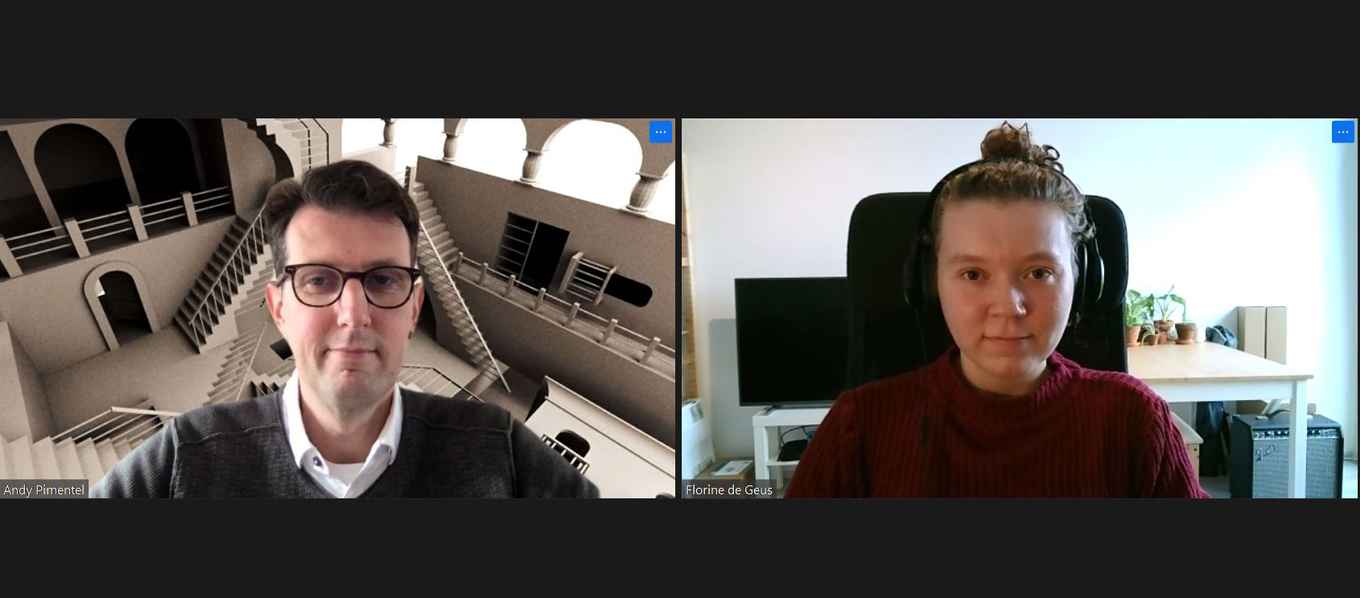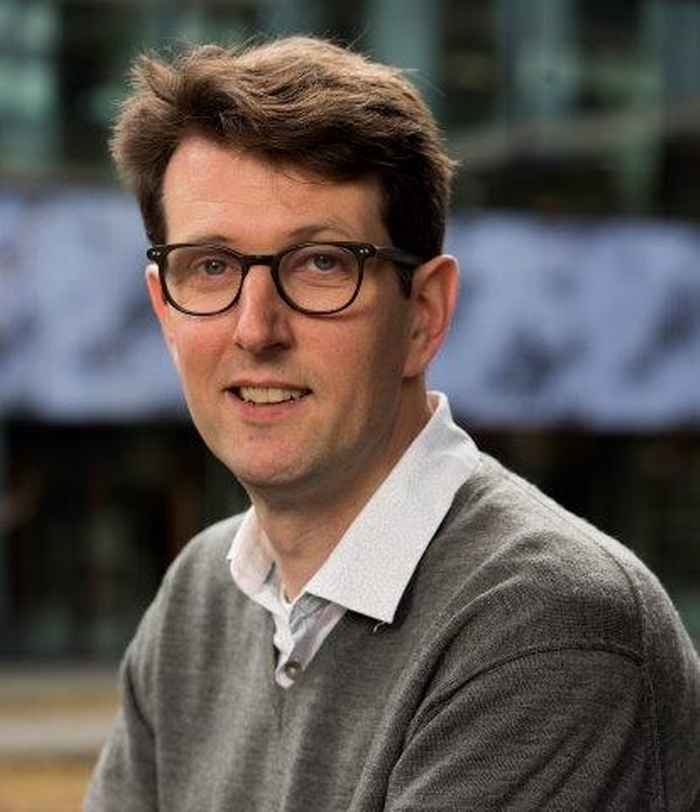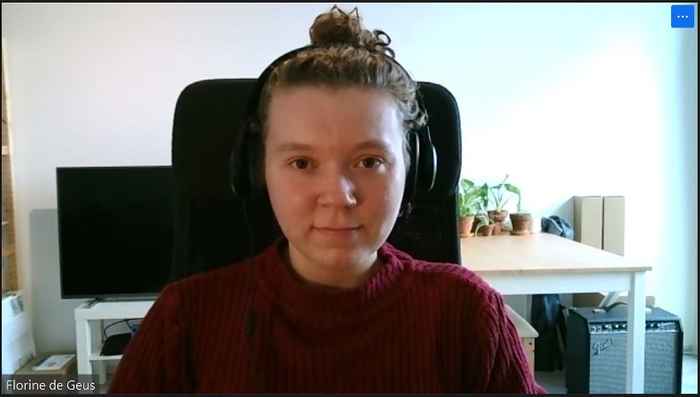20 years Faculty of Science: the past, present and future of Informatics
3 November 2020

Text: Edda Heinsman.
'But it's not like we spend our days making chips,' laughs Pimentel through an occasionally unstable zoom connection. However, the software they develop is also used in the microchip industry. As a result, Pimentel's research group cooperates intensively with the business community. 'Almost all the chips in your computer, smartphone or TV are made by ASML machines. These are huge complex devices containing lots of computer systems. Things obviously go wrong from time to time, so we develop methods to detect problems and apply our models to see if we can resolve them,' Pimentel explains. 'Our models also allow us to predict how well chips will perform and determine how economical, efficient and reliable they will be before the start of production.'
De Geus also works closely with the business community. 'I finished my Bachelor's thesis last summer and did my research at Axini, the company where I now work as a part-time software engineer.' She points out the space around her, a student room in Diemen at the time of the interview. Meanwhile, she moved to a studio apartment at the Science Park. She really regrets the fact that we cannot meet in real life at the Science Park.

Pimentel also prefers to meet in real life, although he does not consider the current restrictions entirely bad. 'I've got mixed feelings, because there are also good sides to the situation. I don't miss commuting. It has become clear to me that I won't be travelling for certain meetings anymore. I used to fly every now and then, and I'll be doing less of that once the coronavirus is gone. You can also do things online.'
He also sees benefits in terms of education: 'I'd never recorded a lecture before, but it seems to have worked out well. Students can rewatch it as often as they want at their own pace. I sometimes explain the same thing twice in different ways to make sure I'm reaching as many students as possible. That can be too slow for some, so they can just fast forward.' Still, Pimentel does miss physical interaction. 'I miss interacting with colleagues and students, writing a problem on a whiteboard and thinking it through together. Certain things just can't be done online.'
Open and light
De Geus is looking forward to her upcoming move to the Science Park campus. 'Science Park is a really nice place. It's a modern building that's very open and has a lot of light. That was a huge factor in my choice of degree programme. I enjoyed maths in high school, but I'm quite practical myself. I tend to learn a lot by doing, and maths is pretty theoretical. I happened to end up at the Computer Science stand at an open day, and it really appealed to me. I visited different universities, but the UvA and the Science Park appealed to me the most.' She is still very happy with her choice. 'The teachers are accessible, and you can drop by anytime. You often run into new people and find a place to study together.'
Pimentel is also enthusiastic about the Science Park. 'Before the move, the students were all at Roeterseiland in the city centre. Us teachers were at Kruislaan in Watergraafsmeer. Going back and forth on the bike was obviously good exercise, but I have far more opportunities to interact with students now.' The building also offers another advantage: 'My room is next to that of a biologist, so we sometimes run into each other at the coffee machine. Those chance encounters can always lead to something interesting.'
Start of construction
Although Pimentel encourages students to drop by his office, he does add, 'They shouldn't all come by at the same time. The programme has grown enormously. Just compare the hundreds of enrolments we have now with the thirty Computer Science Bachelor's students a few years ago.' The Geus adds, 'The building clearly wasn't designed for that many students. But they're building a new place for us, the construction work started last month.'
A new building with more study places; are there any more changes to come? 'I personally hope the pool of researchers and students will become more diverse, in terms of both gender and background,' says De Geus. 'I think a more diverse academic culture brings new perspectives and cool things in general.' Pimentel finds it difficult to predict where the field of study is headed. 'This is a very young domain compared to mathematics and physics, for example. Still, Computing Science's impact is clearly growing throughout all domains, including the humanities, languages and law and the natural sciences. I expect we'll be transitioning away from this supporting role in future. The domain is growing up and evolving into a really mature field of research. Informatics will be everywhere in twenty years.'
Other interviews
- 20 years Faculty of Science: the past, present and future of Biology
- 20 years Faculty of Science: the past, present and future of Biomedical Sciences
- 20 years Faculty of Science: the past, present and future of Psychobiology
- 20 years Faculty of Science: the past, present and future of Information Studies
- 20 years Faculty of Science: the past, present and future of Artificial Intelligence
- 20 years Faculty of Science: the past, present and future of Chemistry
- 20 years Faculty of Science: the past, present and future of Physics and Astronomy
Twitter and stay informed of scientific insights and the latest news about the Faculty of Science.
